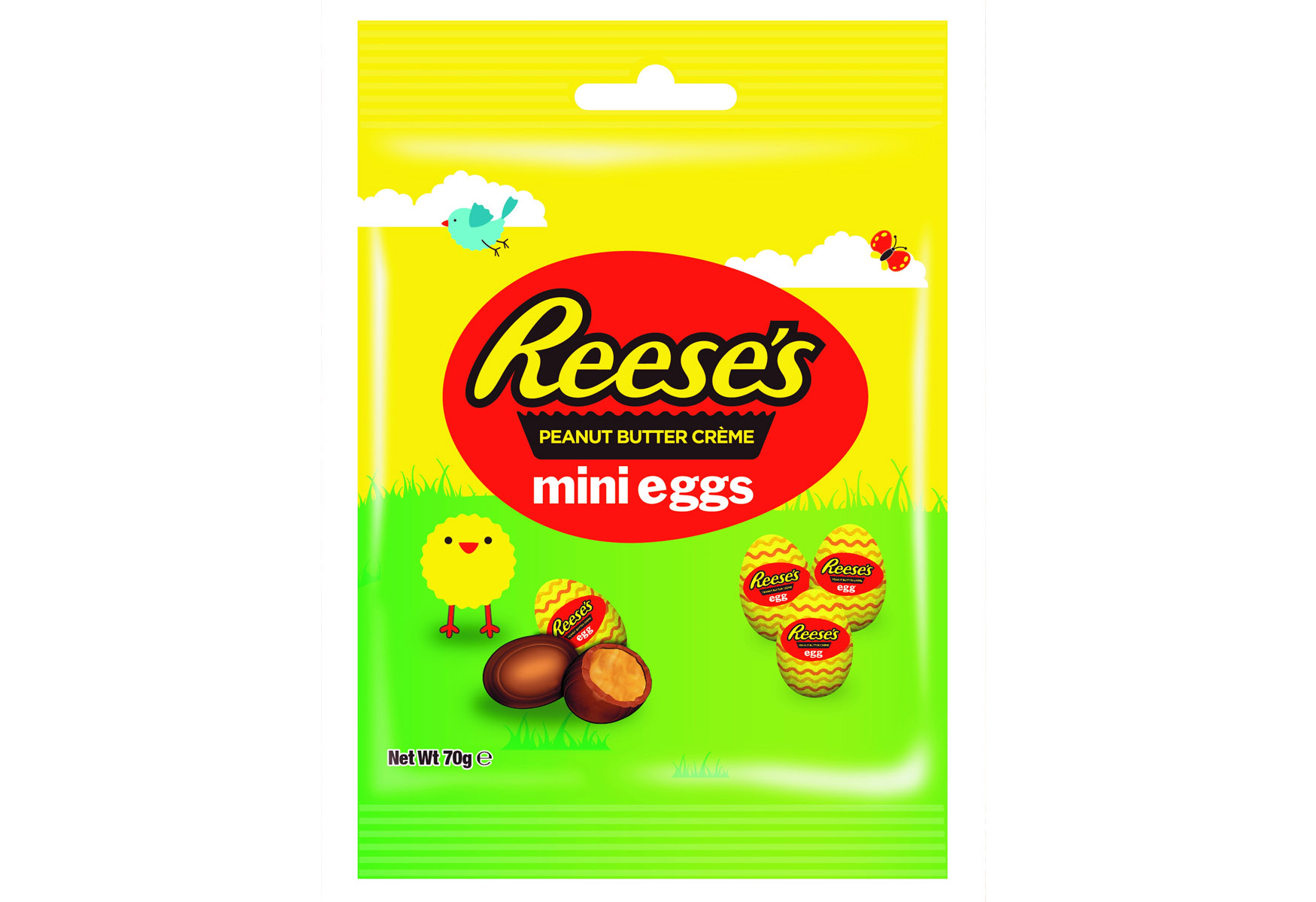
Key Takeaways:
- Reese’s Mini Eggs are a delicious treat, but be mindful of their high calorie and sugar content. Enjoy them in moderation as part of a balanced diet.
- Keep an eye on the fat and sodium in Reese’s Mini Eggs, and be aware of potential allergens like peanuts, milk, and soy. Enjoy them responsibly!
Serving Size
The serving size of Reese’s Mini Eggs is 40 grams or about 12 pieces.
Calories
A serving of Reese’s Mini Eggs contains approximately 210 calories.
Total Fat
Each serving contains 13 grams of total fat, including 6 grams of saturated fat.
Cholesterol
Reese’s Mini Eggs do not contain any cholesterol.
Sodium
There is 75 milligrams of sodium per serving in Reese’s Mini Eggs.
Carbohydrates
A serving of Reese’s Mini Eggs provides 26 grams of carbohydrates.
Dietary Fiber
Each serving contains 1 gram of dietary fiber.
Sugars
Reese’s Mini Eggs have 22 grams of sugar per serving.
Protein
There are 4 grams of protein in each serving of Reese’s Mini Eggs.
Vitamins and Minerals
Reese’s Mini Eggs do not provide significant amounts of vitamins or minerals.
Allergen Information
Reese’s Mini Eggs contain peanuts, milk, soy, and may also contain tree nuts and wheat.
Reese’s Mini Eggs are a popular treat enjoyed by many. These bite-sized chocolate candies are filled with a creamy peanut butter center, providing a delicious and satisfying snack. However, it’s important to be mindful of their nutritional facts.
A serving of Reese’s Mini Eggs, which is about 12 pieces or 40 grams, contains approximately 210 calories. This snack is relatively high in calories and should be enjoyed in moderation as part of a balanced diet.
In terms of fat content, Reese’s Mini Eggs contain 13 grams of total fat per serving, with 6 grams being saturated fat. Saturated fat should be consumed in limited amounts as it has been associated with an increased risk of heart disease.
While Reese’s Mini Eggs do not contain any cholesterol, it’s important to note that they do have 75 milligrams of sodium per serving. Individuals watching their sodium intake should be mindful of their consumption.
Carbohydrates in Reese’s Mini Eggs come in at 26 grams per serving, with 22 grams of sugar. It’s essential to be aware of the sugar content, as excessive sugar consumption can contribute to weight gain and other health issues.
On the positive side, Reese’s Mini Eggs do provide 4 grams of protein per serving. Protein is an important macronutrient that plays a role in muscle repair and maintenance.
It’s essential to be mindful of any allergens present in Reese’s Mini Eggs. These candies contain peanuts, milk, and soy. They may also contain tree nuts and wheat, so individuals with specific allergies or dietary restrictions should exercise caution.
When indulging in Reese’s Mini Eggs, enjoy them in moderation and be mindful of your overall diet and nutritional intake. While they can be a tasty treat, it’s important to make informed choices for your health and wellbeing.
Conclusion
In conclusion, Reese’s Mini Eggs are a delicious treat, but it’s important to be mindful of their nutritional value. These bite-sized goodies are packed with flavor, but also contain calories, fat, and sugar. It’s crucial to enjoy them in moderation as part of a well-balanced diet.While Reese’s Mini Eggs can be a delightful indulgence, it’s always wise to be aware of your intake and make informed choices. Remember to read the nutrition facts label, practice portion control, and incorporate regular physical activity into your routine to maintain a healthy lifestyle.So go ahead and savor the rich chocolate and peanut butter combination of Reese’s Mini Eggs, but remember to enjoy them in moderation. Balance is the key to indulging in your favorite treats while still nourishing your body.
FAQs
1. How many calories are there in one Reese’s Mini Egg?
One Reese’s Mini Egg contains approximately 36 calories.
2. How much fat is in a serving of Reese’s Mini Eggs?
A serving of Reese’s Mini Eggs, which is about 5 eggs, contains 10 grams of fat.
3. Are Reese’s Mini Eggs gluten-free?
Yes, Reese’s Mini Eggs are gluten-free, making them a suitable option for individuals with gluten sensitivities or celiac disease.
4. Are there any allergens present in Reese’s Mini Eggs?
Reese’s Mini Eggs contain peanuts, milk, and soy. Individuals with allergies to these ingredients should avoid consuming them.
5. Can I incorporate Reese’s Mini Eggs into a balanced diet?
Yes, you can enjoy Reese’s Mini Eggs as part of a balanced diet. It’s important to consume them in moderation and make sure to include other nutrient-rich foods to meet your dietary needs.
6. Are Reese’s Mini Eggs suitable for vegans?
No, Reese’s Mini Eggs contain milk and are not suitable for a vegan diet. Vegans can consider alternative options that align with their dietary preferences.
Was this page helpful?
Our commitment to delivering trustworthy and engaging content is at the heart of what we do. Each fact on our site is contributed by real users like you, bringing a wealth of diverse insights and information. To ensure the highest standards of accuracy and reliability, our dedicated editors meticulously review each submission. This process guarantees that the facts we share are not only fascinating but also credible. Trust in our commitment to quality and authenticity as you explore and learn with us.
